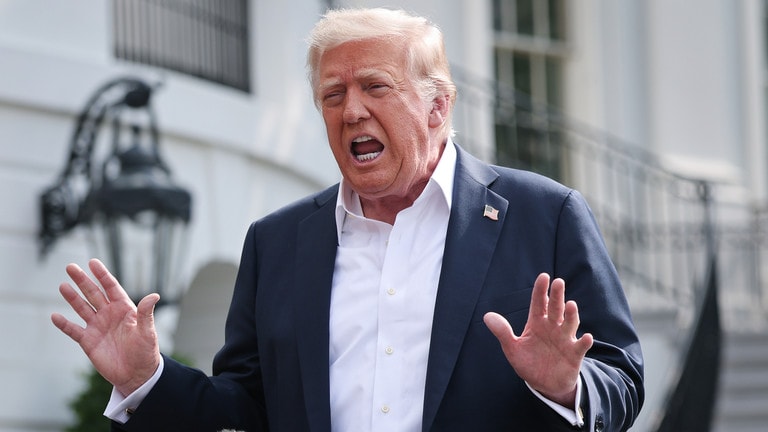President Trump sets conditions for EU and Mexico if they want to avoid 30% tax from August 1
US President Donald Trump announced on July 12 that Washington will impose a 30% tariff on two of its most important trading partners, the European Union (EU) and Mexico.

Just days earlier, according to RT, Mr. Trump also announced a series of tariffs targeting key US allies in Asia, as well as some BRICS countries.
The president revealed the new tariffs in letters to European Commission President Ursula von der Leyen and Mexican President Claudia Sheinbaum, which he posted on the Truth Social social network on July 12. The tariffs are scheduled to take effect on August 1.
Mr Trump accused Mexico of not doing enough to combat the trafficking of fentanyl into the US, and noted that tariffs could be lowered if the country succeeded in “challenging the cartels and stopping the flow” of the deadly opioid.
In a letter to von der Leyen, the US president denounced the EU's "trade deficit" with the US. He also offered an "adjustment" to the 30% tariff if the bloc eliminated its own tariffs and opened up trade barriers to US goods.
Both 30% tariffs are separate from existing “sectoral tariffs,” such as the 25% tariffs on steel, aluminum, and auto imports imposed earlier this year. The president warned that he would match any retaliatory tariffs imposed by the EU or Mexico and add them to the 30% tariff.
In addition, Mr Trump announced that he would exempt the corresponding tariffs on imports into the US if the EU and Mexico – or their domestic companies – “decide to build or manufacture products inside the United States”.
Both Mexico and the EU are among Washington's largest trading partners, exporting $505 billion and $606 billion in goods to the United States last year, respectively, according to the Office of the US Trade Representative.
“We will continue to work towards an agreement before August 1,” von der Leyen said in a post on X on July 12, adding that Brussels would be “ready to defend EU interests on the basis of proportionate countermeasures.”
Trump imposed 20% tariffs on EU imports in February, triggering retaliatory measures from Brussels. The US president later suspended most of the 10% tariffs following market turmoil, but the suspension expired on July 11. Despite talks, Washington and Brussels have yet to reach a final trade deal.
The tariff standoff may have damaged EU-US relations beyond repair, von der Leyen said at a forum in Rome on July 10. “The relationship with the US may never be the same again,” she said.
